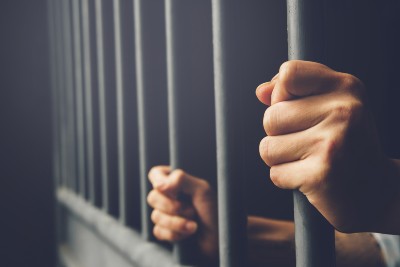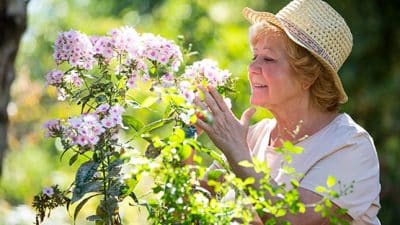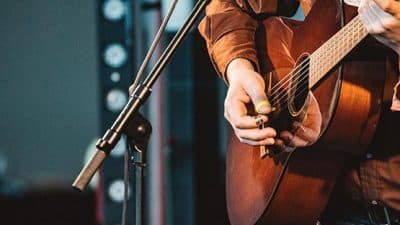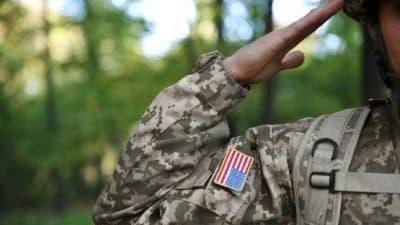
The community conversation on the true costs of criminal justice and the Middle River Regional Jail scheduled for Monday night has moved to Zoom.
Register in advance for the 6-8:30 p.m. conversation, sponsored by Building Bridges for the Greater Good, by filling out this form: forms.gle/RdRpum2Qjn3d992A9.
Featured speakers
- Rev John Butler, Gemeinschaft Home, on costs of incarceration to individuals and families
- Sabrina Burress / Dr. Darius Green, the ARROW Project, speaking on the mental health dimension
- Tony Davenport, Chief Probation and Parole Officer for Virginia Department of Corrections, on the costs to the community when those incarcerated are unable to contribute financially, socially, entrepreneurially
- Dr Nancy Insco, The Institute for Reform and Solutions, on costs to the community of over-investing in the criminal legal / carceral system, rather than in other approaches to community safety and justice.
- Hannah Wittmer, CAMRRJ, on research into the demographics of incarceration at MRRJ, as well as the status of expansion plans as of late August.
The focus
Building Bridges to the Greater Good was founded in 2016 by former Staunton City Council member Ophie Kier.
“Our purpose is to help combat racism through education, and also through a providing a dialogue that allows everybody to be treated with respect, according to what their views are, to listen and then show respect to the other person, even if we don’t agree,” said Rev. Elaine Rose, the president of BBGG.
“Building Bridges has been doing different community-based programs, trying to bring together a dialogue on racism and different issues that happen in the Shenandoah Valley, but also in the in the whole world. Because we want people to be aware of, Hey, this is what’s happening to the black and brown community all over the world. These are the things that we that we experience on a day-to-day basis that other races may not look at and realize that we’re being harmed through these experiences. Hopefully by that, we will build a bridge of good community conversation, good respect for each other, and also building a better community as a whole. And that we might be able to work together to make not just the Shenandoah Valley good, but the whole world good by simply being kind to one another and respecting each other’s area and purpose,” Rose said.
The focus for Monday’s discussion is to open people’s eyes to the trickle-down effect of mass incarceration on the community.
“We want to look at how it affects the community to pay the cost of incarceration, how it affects the business community, when you lock somebody up, there could have been an entrepreneur, how it affects the children when their parents are incarcerated, how it affects the whole community, because then that person can’t be a productive citizen of the community,” Rose said. “And certainly there is a great disparity in the legal system, when usually somebody that is black or brown gets more time for a crime than somebody that is Caucasian. We see that so often. Also, they’re least likely to be let out on work release.
“We want people to look at this as a whole, when we think that, Oh, remodeling Middle River Jail is a great thing. It’s not a great thing, when it holds up our community from all those different aspects,” Rose said. “If we’re going to pay, I think it’s like $35 a day to house somebody, something like that, $35 a day to have somebody in jail, we could also pay that same money to put them in a program where they could be working, be at home, parenting their children, they could be paying taxes. Instead of us taking care of them, they could be taking care of themselves, while they’re learning a different career, while they’re learning how to handle things different.”
Impact
The Central Shenandoah Valley jails far more people than the national average, according to Catherine Barnes, an affiliate associate professor at the Eastern Mennonite University Center for Justice and Peacebuilding.
“We are jailing far more people than the national average. The average nationally is about two and a quarter people per 1,000 residents. In Staunton, it is almost seven in 1,000. I mean, it’s way over the national average, and when we jail more people in America than in almost any other country on Earth, this gives you some perspective. And the population that is black is about 6 percent of the population in the in the area the Middle River jail serves, but 22 percent of the jail’s inmates are black. So that’s giving you a sense of how this is really grossly disproportionate,” Barnes said.
Another key issue: about a third of those incarcerated at MRRJ have a mental health diagnosis.
“And we’re not investing in mental health,” Barnes said. “We see so many young people, and young people of color, especially, who are facing so many pressures in society, and things that are leading to two things that are, you know, often very traumatic, and can exacerbate mental health issues. We need to tend to these early on preventive care, loving care, care that keeps everyone in the community.”
Barnes hopes participants in Monday’s Zoom “come away with a sense of what should our priorities be, that they have a better understanding of the issues, that they care more, and that we have a conversation that I think is long overdue on what do we do as a community to promote safety, justice, health and well-being of all of our brothers and sisters, whatever color, whatever class, whatever background, and how do we do that in the best way possible, to not just accept that, we’ve done this before, we’ll just keep doing this.”
“We need to invest in the things that are going to keep us all safe and well and happy and thriving. That’s good for everybody. And our overreliance right now on the on incarceration doesn’t seem to be the pathway forward. That’s my view. Others may have other views, but I hope at least people have a more informed understanding of the complexities and how these things all fit together, so that then maybe motivated to take this forward,” Barnes said.
Story by Chris Graham










